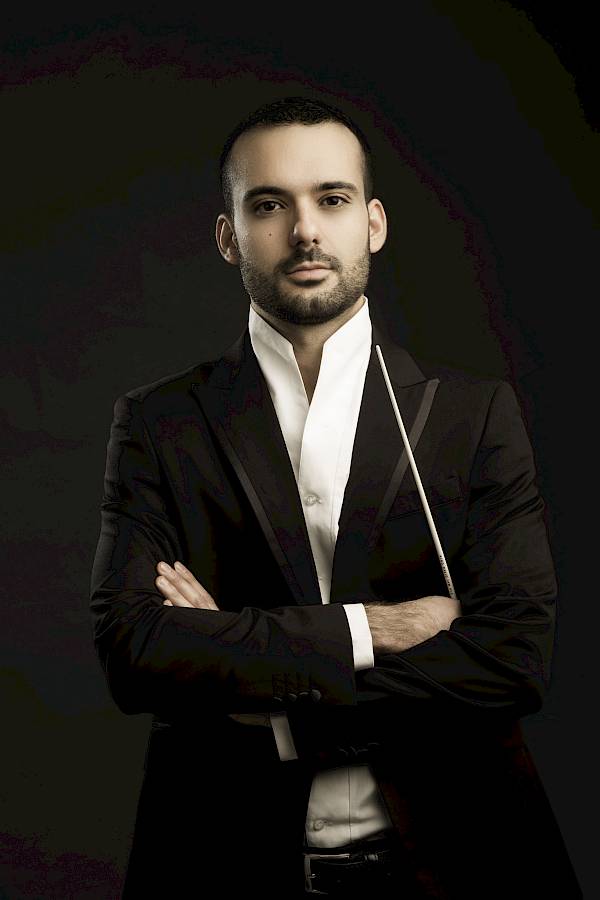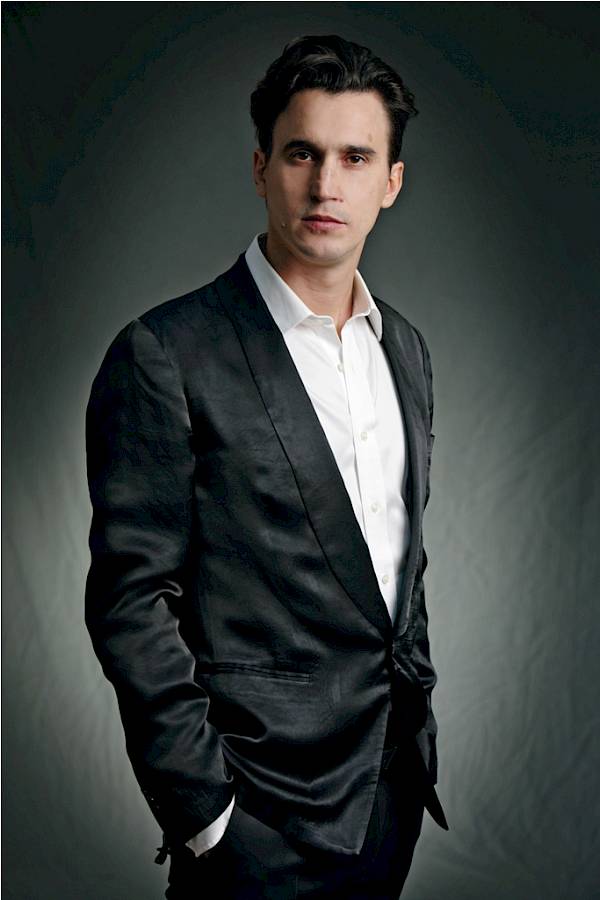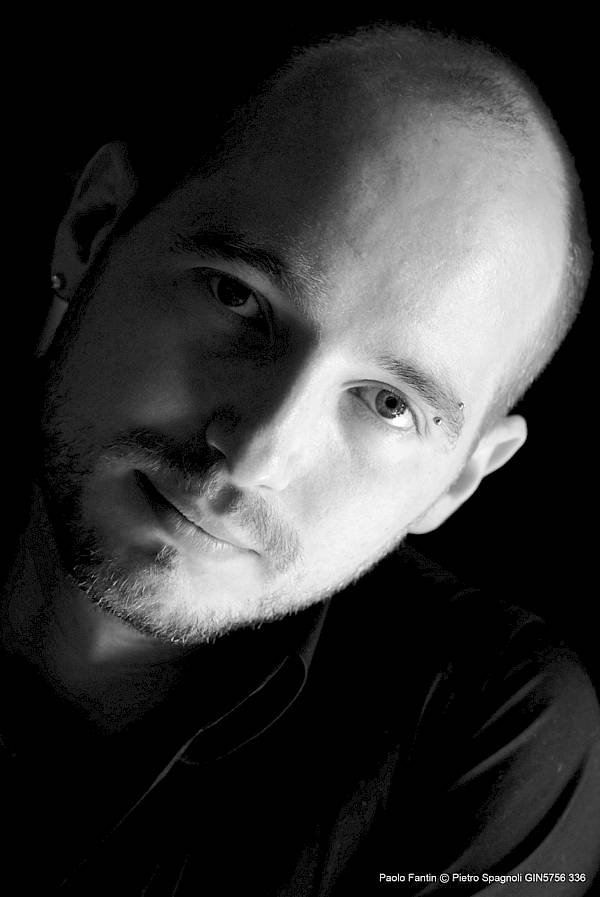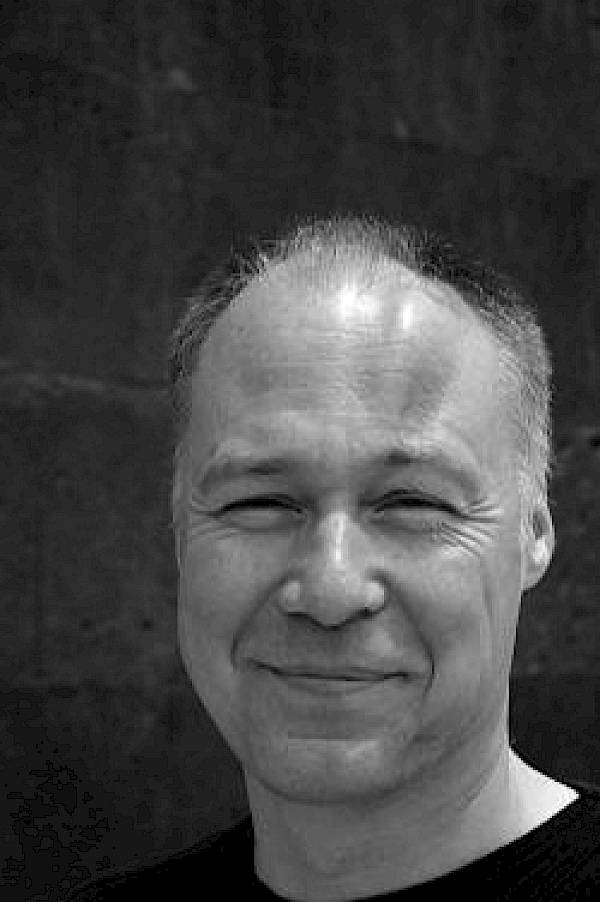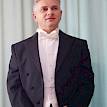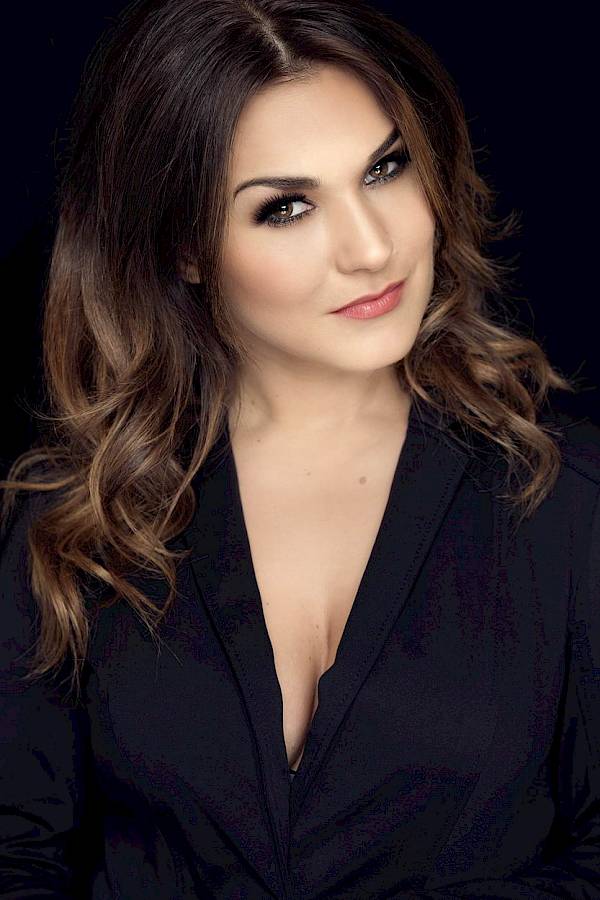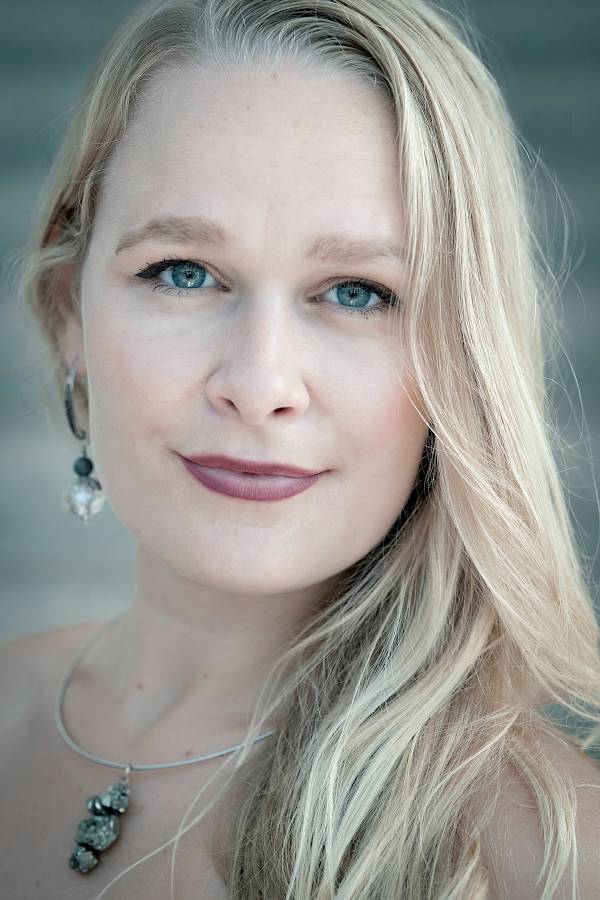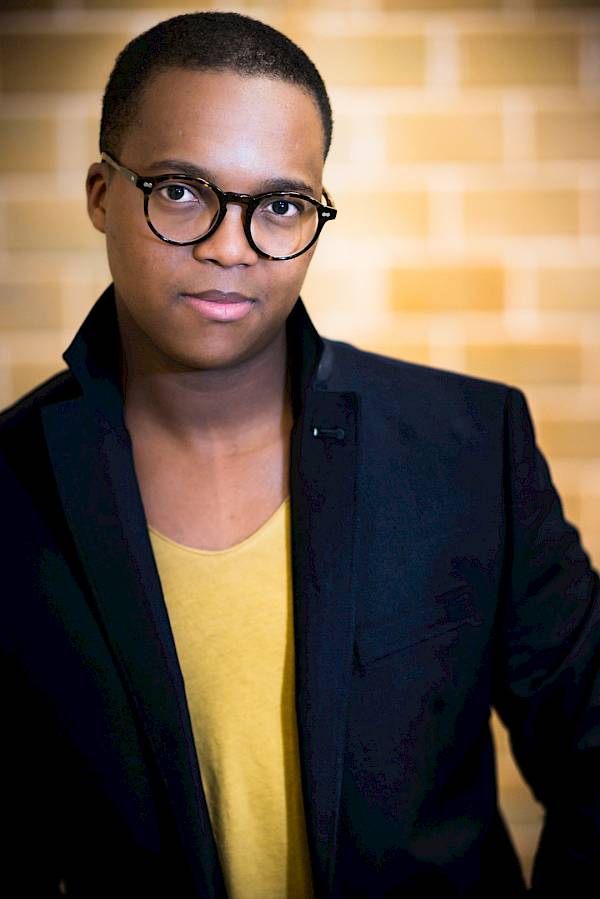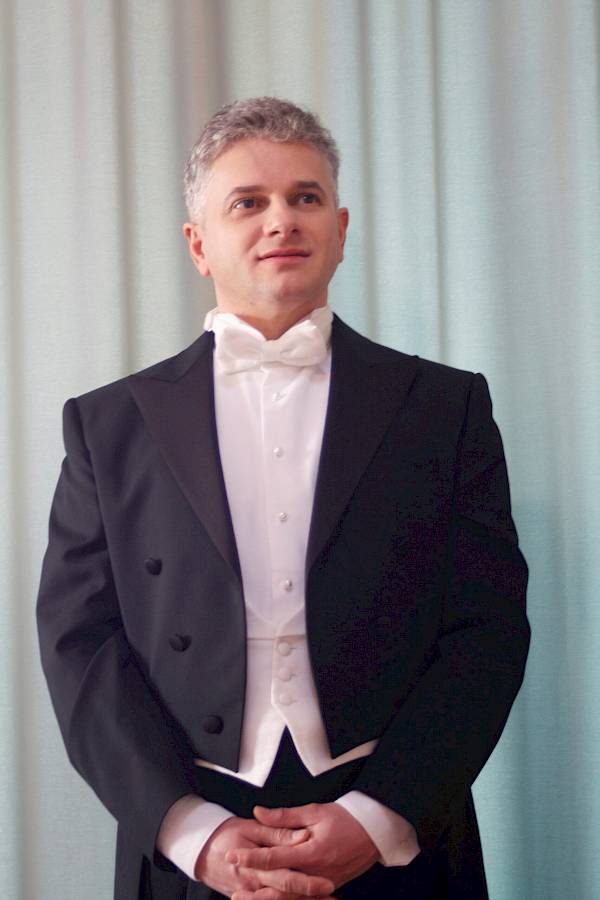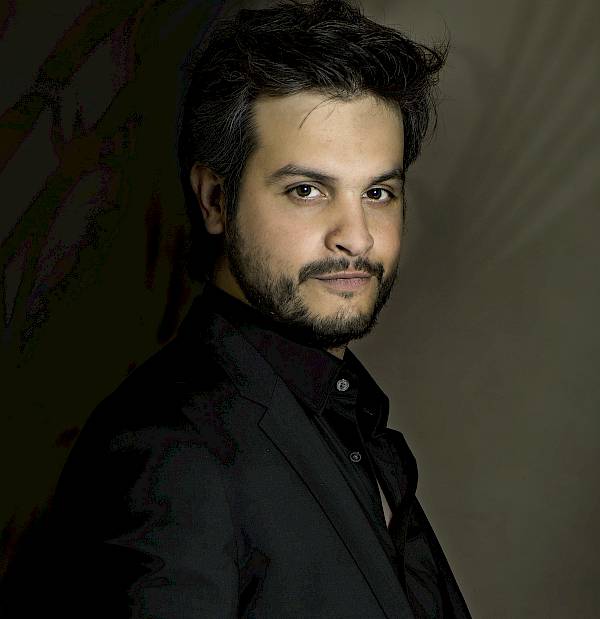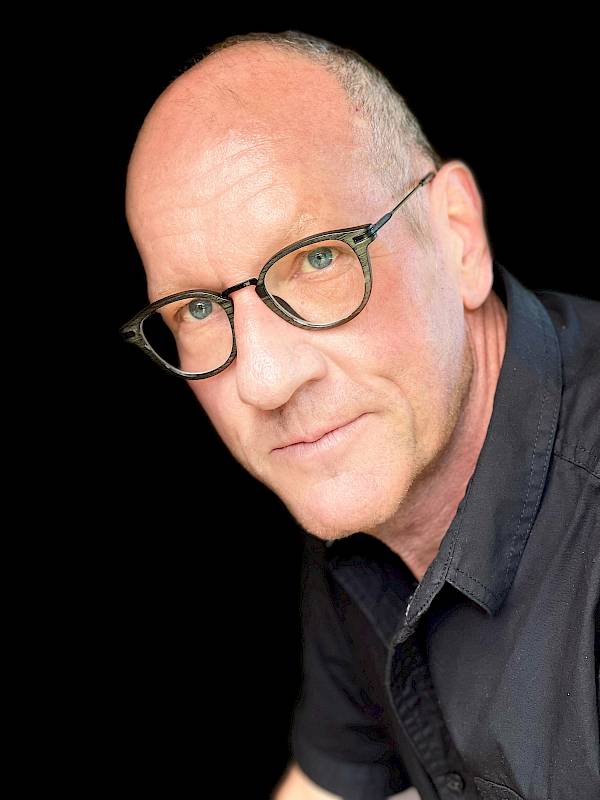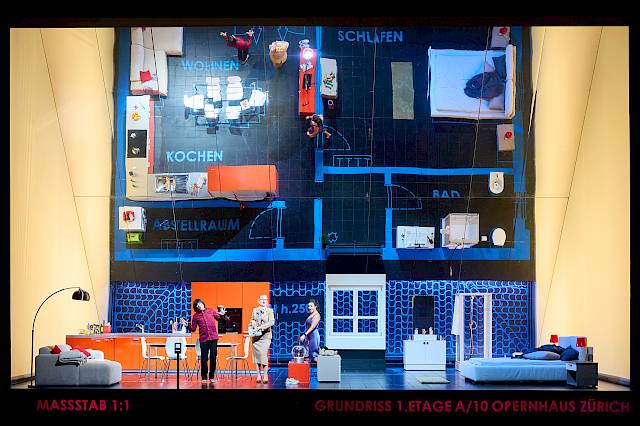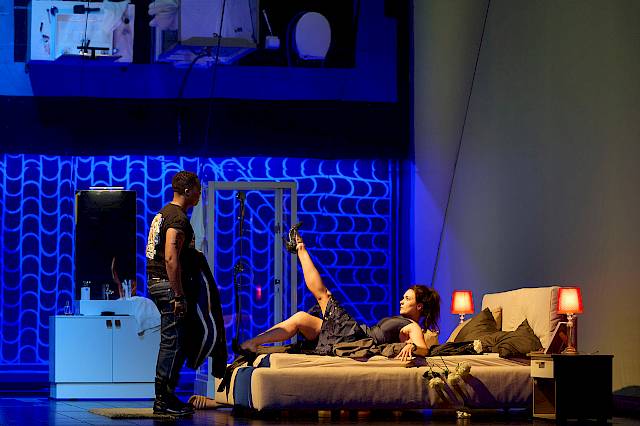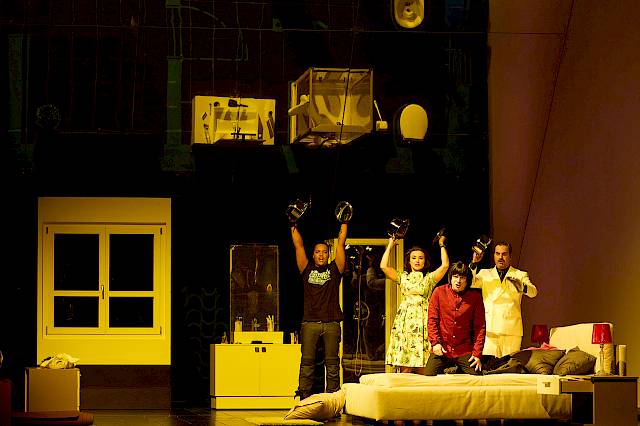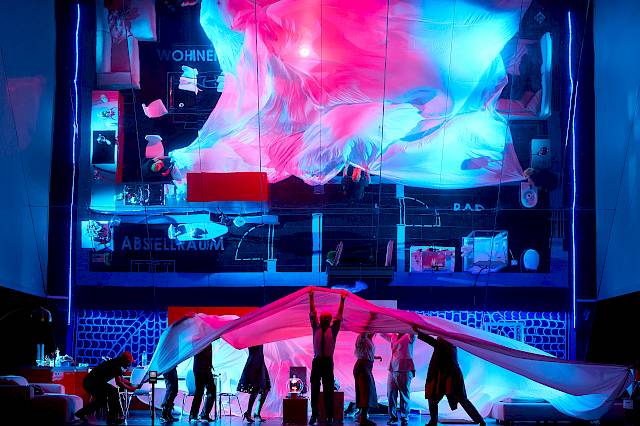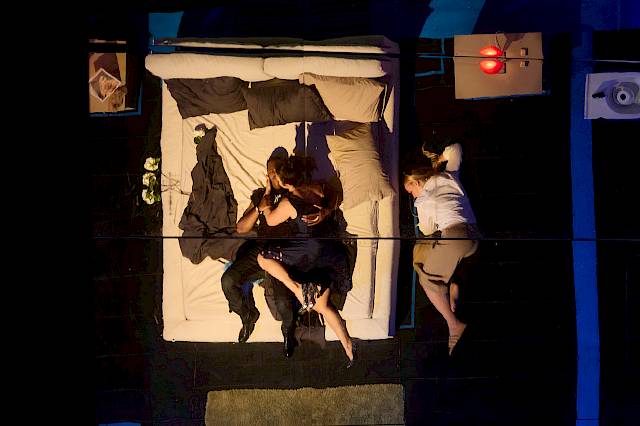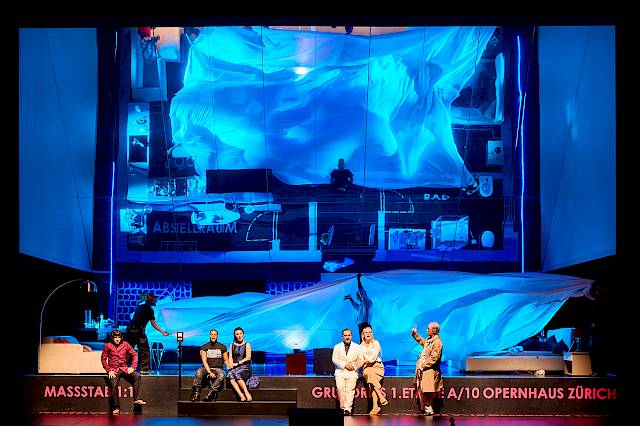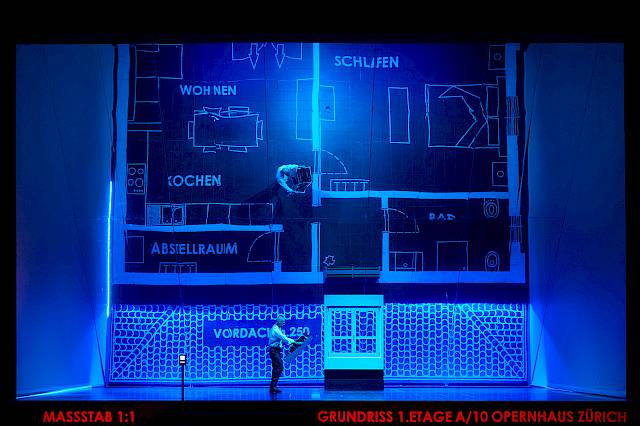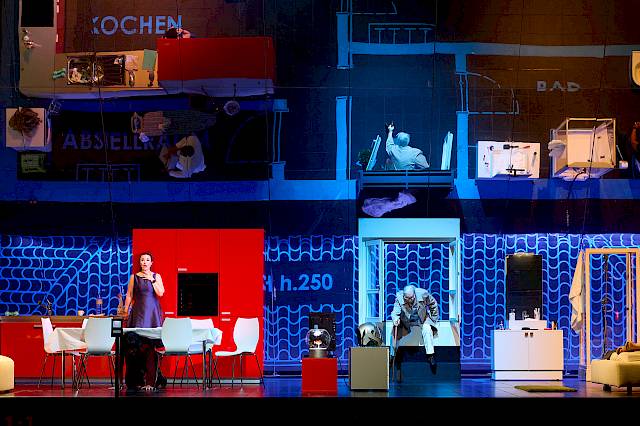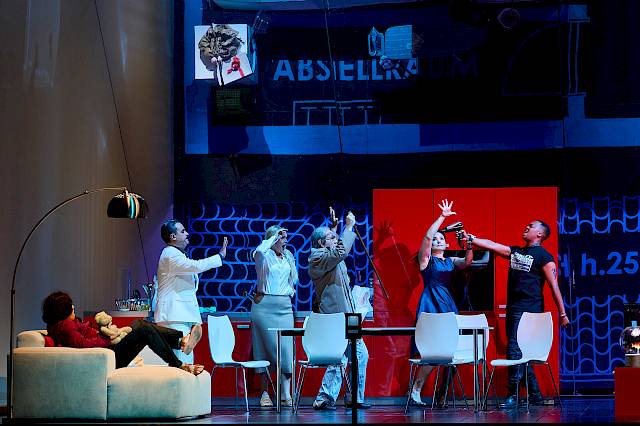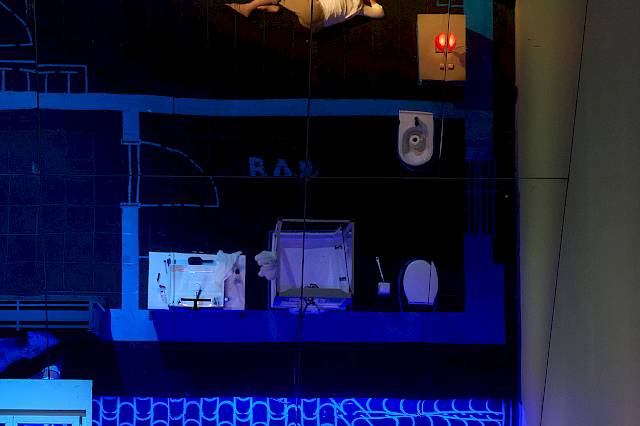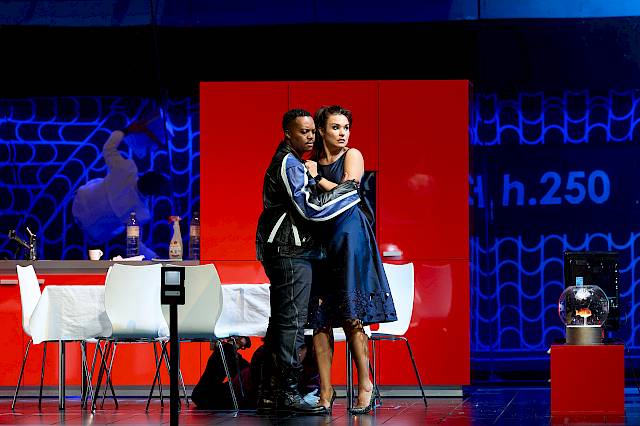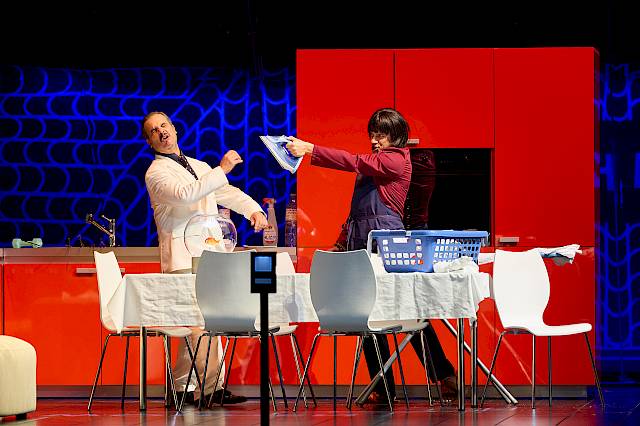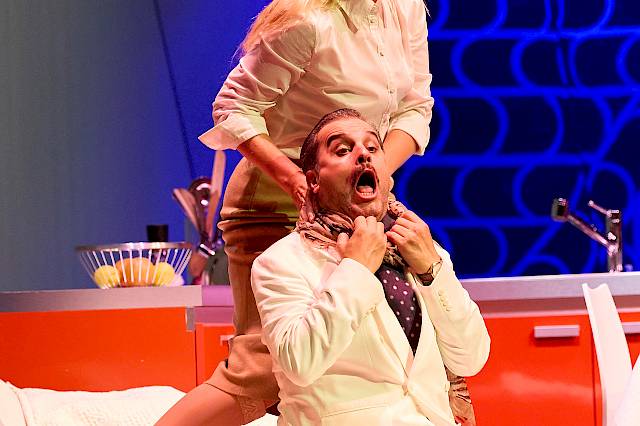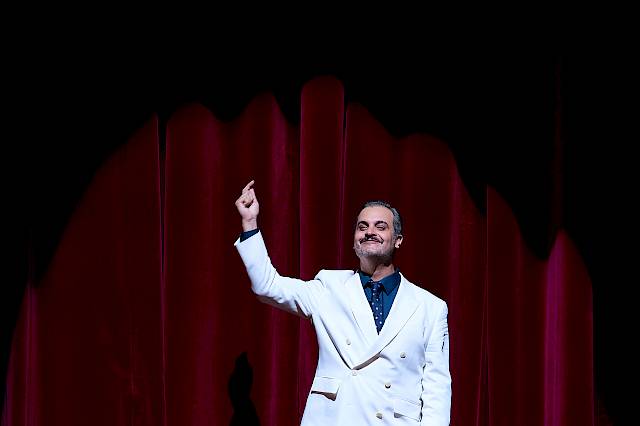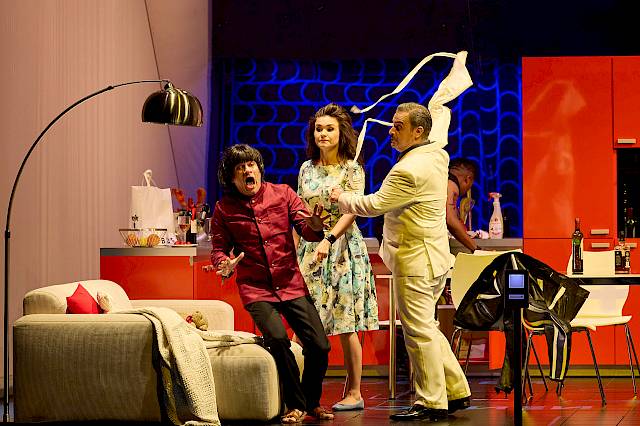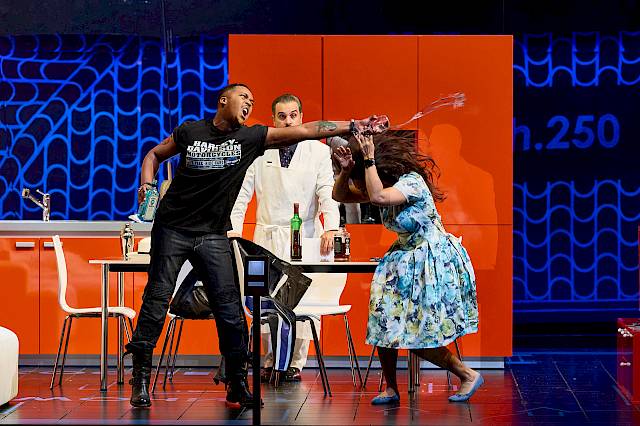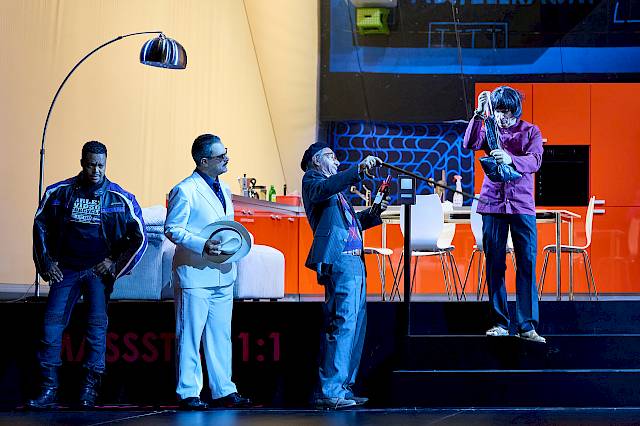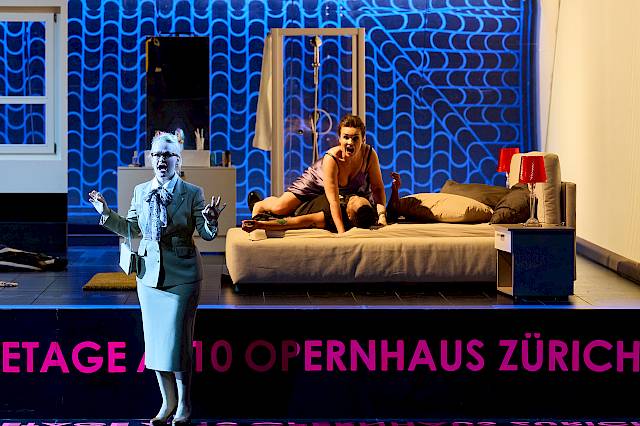Giulia receives her lover, Dorvil, in her apartment by means of a “silken ladder” every night. However, this time the couple is disturbed by Germano, the domestic, who has also taken a shine to Giulia. He ascribes Giulia’s unease to her imminent marriage: Dormont, her guardian, has decided to marry her to Dorvil’s friend, Blansac. Scarcely has Giulia succeeded in ridding herself of the persistent Germano than another uninvited guest is announced. It is Giulia’s cousin, Lucilla, who tells her that she must go to her guardian immediately. Dorvil is fearful of Giulia meeting the lady-killer Blansac, but Giulia cannot understand his jealousy. She reassures him and makes an appointment with him for midnight. Dorvil has just managed to climb out of the window when Dormont appears, bringing Giulia the news that Blansac is about to arrive. Lucilla has already seen him – and she likes him.
In order to rid herself of Blansac, Giulia plans to take advantage of Lucilla’s infatuation for Blansac and pair them off. To do so, she involves Germano, who, however, takes her advances at face value. When she asks him to observe Lucilla and Blansac, he complies, disappointed, with her wishes. Giulia has scarcely walked away when Blansac also arrives in the company of Dorvil, whom he has chosen to be his best man. Dorvil attempts to dissuade Blansac from marrying Giulia and claims that she has no interest in him and is merely obeying her guardian’s orders. Blansac, his honour piqued, bets Dorvil that Giulia will be at his feet in no time, and Dorvil shall be his witness. Both worried and curious, Dorvil agrees to play the observer. Shortly thereafter, Giulia indeed seems to respond to Blansac’s advances, but in reality is merely testing whether he could be a worthy husband for her cousin. Dorvil, meanwhile, interprets Giulia’s behaviour completely differently. When Germano ferrets him out, he reveals his identity, much to Giulia’s horror. Only with great effort is he able to conceal his jealousy. Giulia, however, is not willing to explain the situation; and so Germano must once again play the scapegoat.
Interval
Despite the abortive meeting with Giulia, Blansac is still confident of victory. He encounters Lucilla. As an inveterate philanderer, he immediately pays court to her, and Lucilla indeed takes the bait. Blansac is enraptured to find two willing women in one house.
Giulia appears. Although she is disappointed by Dorvil’s behaviour, she longs to meet him. Germano overhears some of what she says and thus learns that she grants a man a “randevù” every night. When the name “Blansac” is mentioned, Germano is convinced that he is Giulia’s nocturnal guest. Half asleep and confused by events, he reports this news to the delighted Blansac. As he cannot keep the secret to himself, Germano also tells Lucilla about the nightly trysts. The two of them decide to hide in order to observe the spectacle.
It is midnight. Dorvil climbs into the room. He heaps accusations on Giulia, while she protests her innocence. A short while later, Blansac also manages to climb into Giulia’s room. Surprised, Giulia hides Dorvil, raging with jealousy, in another room. While she attempts to clarify the misunderstanding with Blansac, a third visitor now also climbs through the window: it is Dormont, who has discovered the ladder. One man after the other now has to reveal himself, and Dormont, who is beginning to see his hopes dashed, wants to have the marriage contract between Giulia and Blansac drafted immediately. At this point, Giulia and Dorvil come clean and announce to her astonished guardian that a “good aunt” has already agreed to their marriage. The bewildered Dormont turns to Blansac. However, when the latter reveals that he wishes to marry Lucilla, Dormont has no choice but to bow before the laws of love.


